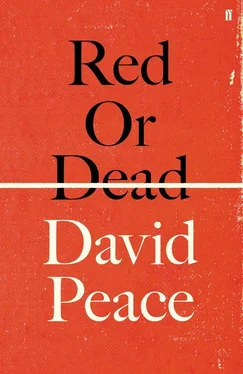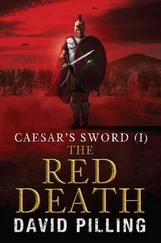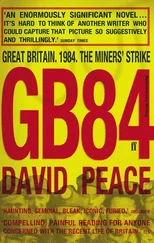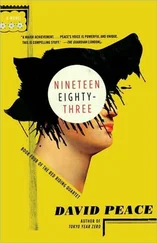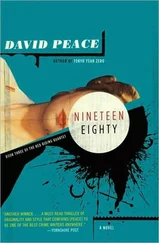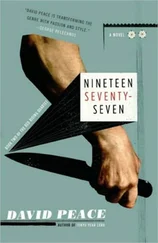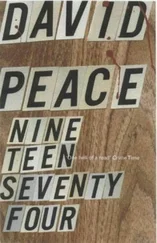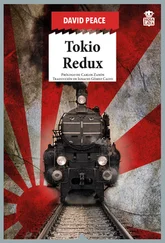They weren’t very good?
No, no. We had eliminated them. So I took them off …
And Bill nodded. And Bill smiled. And Bill waited –
So you became a manager, said the interviewer. And you started in some fairly far-flung places: Workington, Grimsby, Carlisle. What did you learn in those far-flung places that worked for you when you finally got to Anfield?
Yes, I started in the outposts. Carlisle. And Grimsby. And Workington. And Huddersfield. Hard places. But good places to be. I enjoyed myself. Yeah …
But what do you learn in a small club which then served you well, when you got to Liverpool?
Well, you learn you’ve got to work with very little money. This is detrimental, of course. But it’s like being brought up in Glenbuck. A hard village, you know? That’s a hard life. So being at Carlisle to manage. Being at Workington to manage, which is an outpost. I mean, that’s hard work. So I think it’s really a good thing to have been there.
You see, to my mind, all the really good managers I’ve met — people like Jock Stein, for example, yourself …
Bill nodded. And Bill said, Yes.
The thing which separates them from all the other managers is not only this drive, but a kind of honesty. That you’re looking after the club, that football counts …
Yes.
Well, I’m not putting this very well. But I suppose what I am trying to say is, there really is something which separates really good managers from the average managers. Now what is it? There’s a marvellous story about Jock Stein. Celtic were playing away at Dundee United. And the match was called off at the last minute …
Bill nodded again. And Bill said, Yes.
And he drove out to Cumbernauld, on a Saturday, and stopped all the supporters’ buses going to Dundee United. So that is what a good manager is about, isn’t it?
Bill nodded. And Bill said, Now that is something. His first thoughts were for the people who pay. He’s right. That was a wonderful thing to do.
Yes. Now going back, over all the years at Liverpool. They say the hardest thing in football is to have one good side, break it up, and create another one. You managed that pretty successfully?
Yeah …
But when you look back, were your affections for the first side really, more than the second?
Yeah, well, they were a great team. And I think that possibly there was very few teams in Britain would have beaten them. Over the last thirty years. To break it up — that was Ian St John, and Ron Yeats, and Peter Thompson, and Roger Hunt. Tommy Smith and Callaghan are still playing, of course — so to break it up was difficult. Because the one thing that surprised me was that I had vouched that I thought they would go on for another three years. Now they didn’t. So they finished three years earlier than I thought they would do. So then my plans weren’t working then. I was in the Third Divisions and Fourth Divisions, looking for players, like the Clemences. And Alec Lindsay and Larry Lloyd. And Keegan and them. But I went early to the Third and Fourth Divisions. I couldn’t go and pay a hundred and fifty thousand pounds for a player and put him in the reserves. So I had to go to the lower leagues. And pick young boys. Eighteen, Clemence was, when I signed him.
What really comes across, when you were building that first Liverpool side, the great side, was that you were absolutely certain that you needed two players. And those two players were Ron Yeats and Ian St John. What was it made you so sure those were the two players that you needed to turn what was an ordinary side into a great one?
Some players are signed on with no doubt at all. No danger. Other ones, well, I hadn’t seen enough of them to be sure of them. So there’s always a risk and a gamble buying a player. Some of them I bought, there was no risk at all. In fact, it was stealing. Stealing!
What about Yeats, for example? Start with him …
Bill smiled again. And Bill said, Oh, Yeats was a colossus. Dear me. One of the biggest men in the game. Defended his box. He was one of the quickest men in the game. And possibly, over seventy, eighty yards, there were nobody in Britain could have lived with him. So he was a powerful man with a big heart. And a big frame. And St John and Yeats were the beginning …
And what has St John got? Because those were more sophisticated skills …
Oh, St John was strong. He was small but punchy and strong. And crafty and cunning. And a needle. He’d put his foot in, if he needed to put his foot in.
You mean, he’d kick his own grandmother?
Oh yes. Well, they’re the kind I want. Yes. You don’t want fellas that are yes, sir, no, sir, three bags full. They don’t do me. I want men to be men. But to take it. If someone else is going to kick them, not to complain. So that it’s a man’s game.
Just go back to the psychology. Because that extended to referees with you, didn’t it? You always had a fair old way of making your points to referees, didn’t you?
Oh well, it’s a difficult job, referees. It’s a hard job. I mean, we tried to help them as much as we could. And in the end, of course, my idea of referees, for the players’ point of view, was don’t dissent. They give decisions against you. It’s no good arguing. You’ll only hurt yourself. You’ll upset your system. You’ll not be normal, if you’re incensed. I said, So forget them. Take it. And if I drummed it into them long enough, then it would get to the point whereby they would take all the decisions and it wouldn’t upset them. So I said, If he gives a free kick against you, you’re all arguing the toss outside the box, and then you might even lose a goal because of this. I said, Now they may have given the decision against you. I said, But I’ll tell you one thing. I’ve never seen a referee scoring a goal yet. They are all complaining about the referee giving a bad decision. I said, He didn’t put the bloody ball in the net, did he? You see? So that was my psychology.
The interviewer laughed.
And Bill smiled.
And then tell us about the Kop, said the interviewer. Was it there before you came?
Oh yes.
The singing and everything else?
Yes, the noise was there. Yeah. Not the singing. The singing came later. The singing came along with the Beatles. And your Gerry Marsden’s You’ll Never Walk Alone. And Ee-Aye-Addio. That all came around the time we were beginning to move in sixty-four, sixty-five. And we win the Cup for the first time …
Is it worth a goal start? Or two-goal start? Because I mean, it must have been an intimidating place for other teams, Anfield?
No, they make a noise. But they are very fair. If you come here and play the game. Play football. They’ll applaud you. If you come here with other intentions, it’s a different story. They can be hard and all. But they are very fair. And they’re very noisy, of course. There’s a big band of them. And I would think that they are possibly the funniest crowd, you know? The humour of them. I mean, they can pick up things right away. I mean, I remember Leeds United coming here. And Sprake, in goal, was going to roll a ball out, you see? So he changed his mind, so he threw it into the net, you see? And inside of two minutes, they were singing Careless Hands . It’s unbelievable. Bloody unbelievable. Yeah. That happened. That’s absolutely true. Yeah …
Why did they make you almost into a god? Because I mean, you were their man, weren’t you?
Well, we were successful. And we’d won the Cup for the first time. I think that was a big thing, you know? That made them proud. I mean, the fact that they hadn’t won it. And they were speaking about hiding, you know? Kind of hiding with big coats on, so nobody would see them. That was one of the things, I think. Having won the Cup, and being successful, and going into Europe. And I was a people’s man, you understand? I’m a socialist.
Читать дальше
